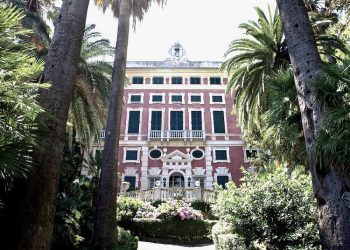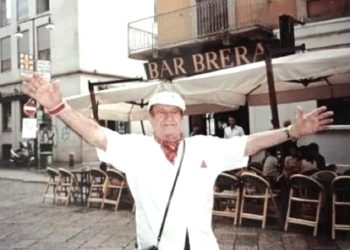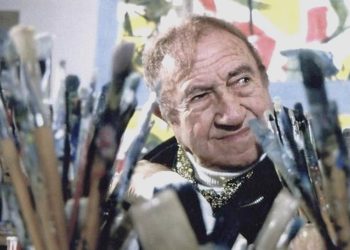Dashnor Kaloçi
Memorie.al/ publishes some archival documents extracted from the Central State Archive in Tirana (fund of the former Central Committee of the ALP), where there is an information report belonging to the months of March 1973, where the instructor of the apparatus of The Central Committee of the ALP (in the sector of legality), Enver Halili, informs the senior leadership about the general meeting of the communists that took place in the first days of that month at the Opera and Ballet Theater and the State Song Ensemble of Folk Dances, for “accountability and choice”. The full report of the senior official of the Central Committee of the ALP, which was seen and signed first by Enver Hoxha and then by Hysni Kapo, Ramiz Alia, Manush Myftiu, Haki Toska, Petro Dode, etc., regarding the problems that troubled the institution of the Opera and Ballet Theater and the Ensemble of Folk Songs and Dances, where he described in detail all the discussions held at that meeting, where various communists criticized and blamed the director, Koço Vasili, the artistic leaders, Zhani Ciko, director Milto Vako, scenographer Ali Oseku, etc., who “had worked under the influence of Fadil Paçrami and had done what he wanted, to the point of dismissing the secretary of the basic organization of the party, Comrade Haxhiu Tafaj ”, etc.
The archival document that we are publishing in this part of the book is an information report dated March 30, 1973, where Enver Halili, then an instructor in the apparatus of the Central Committee of the ALP (in the legality sector), informs the leadership of regarding the problems that had arisen from the analysis of the two-year work at the Opera and Ballet Theater and the State Ensemble of Folk Songs and Dances, where he had been himself a delegate and had attended the general meeting of the communists of that institution, by the most important of Arts and Culture.
This can be seen from the document in question (see the relevant facsimiles), as the report-information of Enver Halili was seen not only by Enver Hoxha (who saw and signed it), but also by the main leaders of the party and state leadership of that time, as the Prime Minister Mehmet Shehu, the secretaries of the Central Committee of the ALP, Hysni Kapo, Ramiz Alia, Manush Myftiu and Haki Toska, as well as Petro Dode, which is rarely found in other archival documents of that period and more pas. (This is also evident from the notes and signatures they have put on the document).
As we will see from the information-report prepared by that meeting, which took place only two weeks after Enver Hoxha’s speech, held at the extended meeting of the communists in the apparatus of the Central Committee of the ALP, where the main topic was : “Foreign liberal performances and their impact on art, culture, literature…”, a discussion which was preceded by the blow and anathema that Enver himself had made, the 11th National Song Festival on Radio-Television, where in the center of the accusations and attacks in that institution, were: Mihallaq Luarasi, (director,) Koço Vasili, (director of the Opera Theater), Zhani Ciko (artistic director of the Opera), Milto Vako (artistic director and director) and Ali Oseku, painter and author of decorations at that institution.
All of them were accused that under the influence of Fadil Paçrami they had done in the Opera, Ballet and the State Ensemble, everything he had asked for and suggested! As a result, they were initially sentenced to various measures, removing them from that institution and later some of them, such as: Mihallaq Luarasi, Milto Vako and Ali Oseku, ended up for years in the political prisons of the communist regime of Enver Hoxha, while Koço Vasili, was initially sent to the small town of Laç, where he worked as a mortar and concrete worker with a shovel, at the construction site (Industrial Construction Company) and then in exile, while Zhani Ciko, was sent as a music teacher and in charge of a village cultural center near the town of Ballsh. And the whole beginning of their punishment had as a starting point exactly these meetings, which are mentioned in the document that we are publishing in this part of the book.
Report of Enver Halili, sent to Enver Hoxha and the senior leadership of the Central Committee of the ALP, regarding the problems in the Opera and Ballet Theater and the Ensemble of Folk Songs and Dances
I N F O R M A T I O N
FROM THE DEVELOPMENT OF THE GENERAL MEETING IN OPERA
On March 11 and 12, the general meeting of the communists took place at the Opera and Ballet Theater for accountability and elections. The report from the party bureau was somewhat prepared, we say this because in addition to the many questions we were asked, 40-50, many other issues were raised in discussions some of which the most important ones we think should have been addressed in the report. In general, there were many weaknesses and shortcomings in the work of the party bureau, grassroots organizations, as well as in the state management of institutions, these not, how much and how should be pointed out with sound criticism and self-criticism.
Although there were many discussions, not including many others who wanted to speak, and did not say that they were issues similar to what others said, the problems they raised were not very prepared and more or less one-sided in nature labor relations, the attitude of the administration and especially the director, Koço Vasili, towards the employees of the institution.
Some of the problems that arose:
For the life of the party
The basic party organizations and the party bureau of the institution have generally led anemic lives, the subject matter of the problems they have discussed has been poor, one-sided and not enough with the problems of ideo-artistic content of daily work in opera, ballet and ensemble.
-The leading role of the grassroots organizations and the party bureau has left much to be desired, the instructions and suggestions of the organization and the communists have not been properly taken into account. Often times the grassroots organizations have not concluded with tasks and decisions, but even when they have issued a decision they have not followed its implementation, especially for those tasks that had to be implemented by state leaders.
The bureau of the party in which the director belongs and another from the directorate apparatus has often turned into a body simply in the service of the director Koço Vasili. Sometimes even planned problems were not discussed in the bureau, with the “reasoning” that we have seen them in the directorate where half of the staff belongs.
Never, said the member of the party bureau, Hysen Kurti, we as a party have not thought to oppose all these foreign influences that are manifested within our collective, the organized ideological educational work.
For direction and relationships at work
At the beginning of 1972 it was decided to give 13-20 performances per month, in fact only 7 were realized. There are many artists who have given few performances throughout the year up to 7-8. The director Jorgji Bitri, for the last five years only worked for 2 weeks directly in her work, at a time when directors from abroad were hired for the same work, like Mihallaq Luarasi and others.
The state ensemble has planned only one premiere a year, although this is very little, during the last two years it has held only one premiere.
– In the institution there is a breakdown in work, is there liberalism in the demand for accountability for work? The releases are made primarily by the artistic director, which come unprepared and as a result for hours in a day the artists are left without work. The problem of duplication, although raised several times by artists, is still unresolved today. There are opinions from Koço Vasili, Zhani Ciko, artistic director and some other specialists, that duplications weaken the artistic side of the show.
These opinions were criticized as wrong and that they harm and become an obstacle for the emergence of new talents. This theory of the aforementioned friends has made that in Opera, many artists stay for weeks and months without any role, and consequently without work. ‘Merited Artist’ Besim Zekthi, among other things, said: “We have talk, lack of discipline, a good part of the employees are out of work, but they are also out of work. Here, every work was done as Fadil Paçrami wanted through Koço Vasili, Zhani Cikos and Milto Vakos, who also used the artistic advice for these purposes “.
– The general meeting of the communists came to the conclusion that in general in the governing bodies there was confusion and distortions in order to in one form or another to hide the shortcomings in the work of the institution. The role of the Party has been deliberately shifted and everything has been done through persons appointed by the director, the artistic director and a few others around them. For this reason, the control team was rejected by the Ministry of Education and Culture, the analysis of the tour in the People’s Republic of China was neglected, the message to return to the discussion of Comrade Enver’s speech in Mat was ignored, and so on.
On foreign influences
Foreign performances and influences are numerous and have been manifested by different people on stage, music, dance, work and plan discipline, fashion and other societies.
– The director of the institution, Koço Vasili, has said several times that the Bureau and the party organization should deal with the education of the employees and not with the ideo-artistic problems with the content of the repertoire, which the directorate and the leading artistic staff should deal with. In fact, this spirit has penetrated and so has acted in this institution.
– In their daily work, Koço Vasili, Zhani Ciko artistic director, and Ali Oseku, painter responsible for the decor, have tried and to some extent succeeded, to share creative forces in music, painting and literature, in old “conservatives” and young “modernists”.
In these views, utilizing the post and responsibility in
The Opera House has been removed from the collaboration by some composers and conductors such as Çesk Zadeja, Mustafa Krantja, Tish Daina, Albert Paparisto and others, considering them as creators with old thoughts, on the other hand they have offered, once and unnecessarily, Mihallaq Luarasi and someone else as a modernist.
Regarding this, the communist Dhimitër Jani said: “Looking at the sympathies and antipathies of people with new (modernist) and old (conservative) tendencies, a gap has been created by the artistic directorate and council with composers and writers, such as Çesk Zadeja , Llazar Siliqi, Tonin Rrota and others, who even when they present a part, we have kept it for 7-8 months, this was done intentionally “.
Koçua, with all those mentioned above, have spoken about the staff of the Ministry of Education, the Culture sector, as people incapable of directing today’s art, based on such an opinion, they have held a disrespectful, even denigrating attitude towards instructions and remarks made by the comrades of the Ministry.
– Under the pretext that many pieces of national character have been consumed, they have been removed from the repertoire of Opera and Ballet, and even in the planning of performances and premieres for 1973, they had foreseen 1/5 national pieces and 4/5 foreign pieces.
– In terms of content and realism in some parts there have been ideological distortions that do not match at all with the features of our socialist artist, for example, the choreographic number “Idili Kurbat” by Panajot Kanaçi, some perverted numbers without ideas, decor and clothing extravagant, dancer in clothes and other cowboy belts.
– The secretary of the basic organization of the Opera and Ballet, Dhimitër Jani said: “Travjata ‘had many decadent expressions, especially by the painter Ali Oseku, was criticized by us but was taken under protection by the directorate, which in order not to upset Mihallaq Luarasi of Ali Oseku, who had warned in a threatening way that if you were removing any item, no matter how small, from what we had put, we would leave, he did the general rehearsal behind closed doors, even the members of the party bureau, and the collective who “They were there that night, they took them out.”
– The communist Hysen Devolli in his discussion said: “The liberal thoughts and actions of Zhani Cikos, Ali Oseku, Mihallaq Luarasi, and mainly Koço Vasili, are supported by comrade Fadil Paçrami, they had warm shoulders, when any reprimand Fadil once in the mouth, saying that he had it or that he approved it “. /Memorie.al
The next issue follows




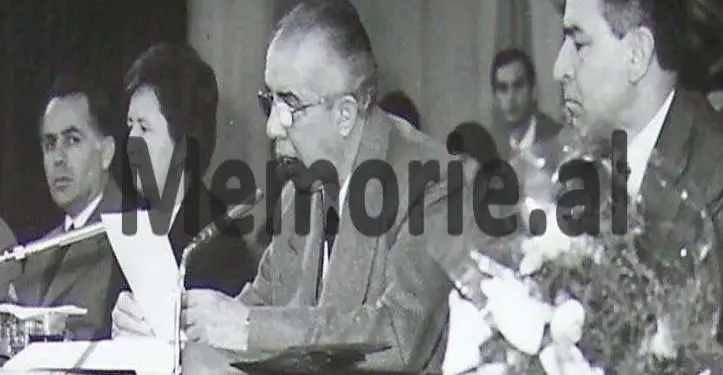
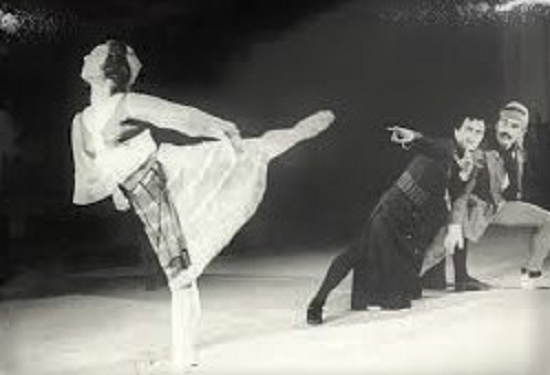
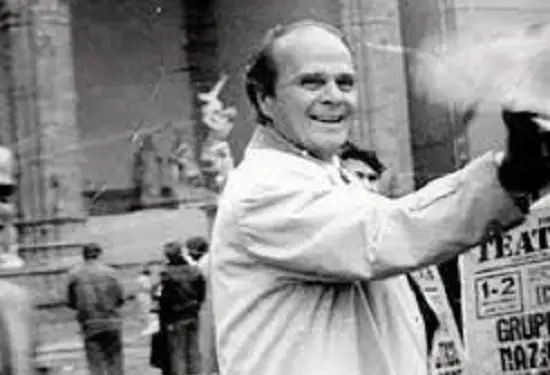
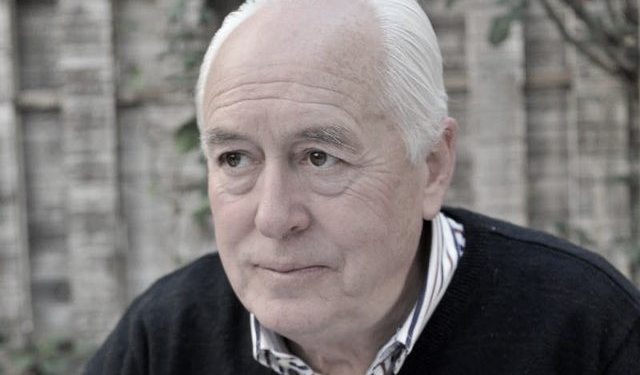
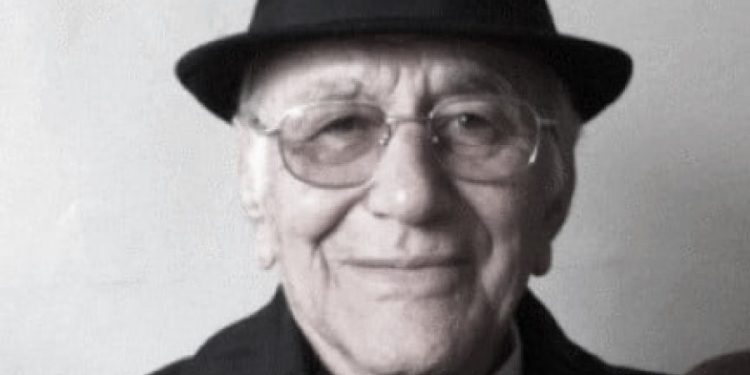
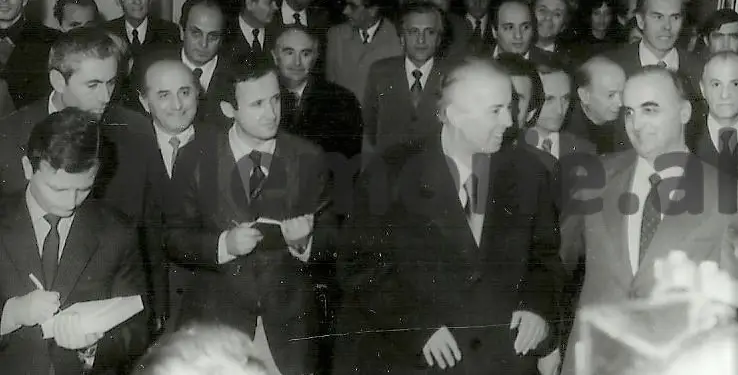
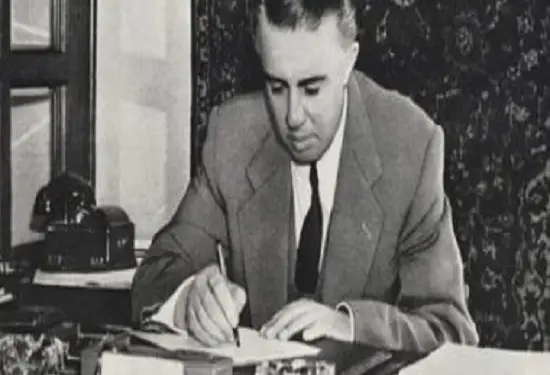
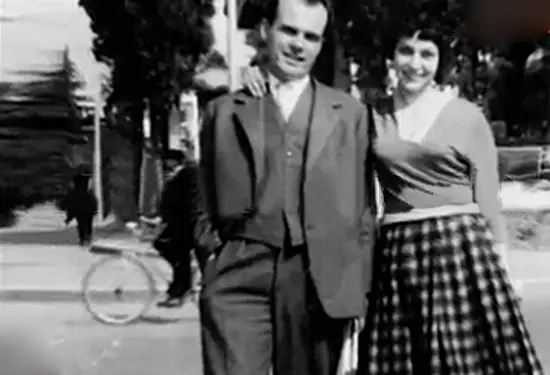
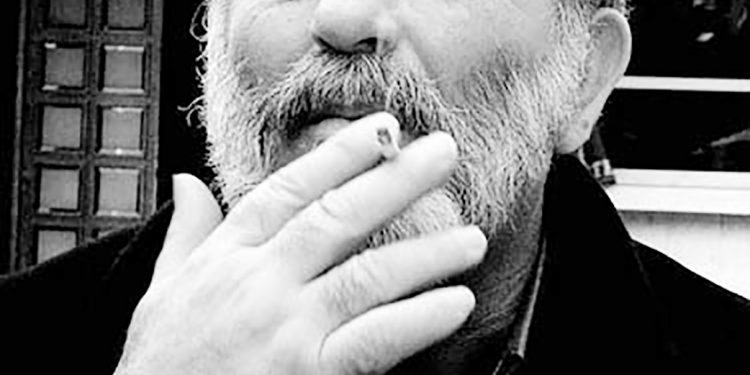

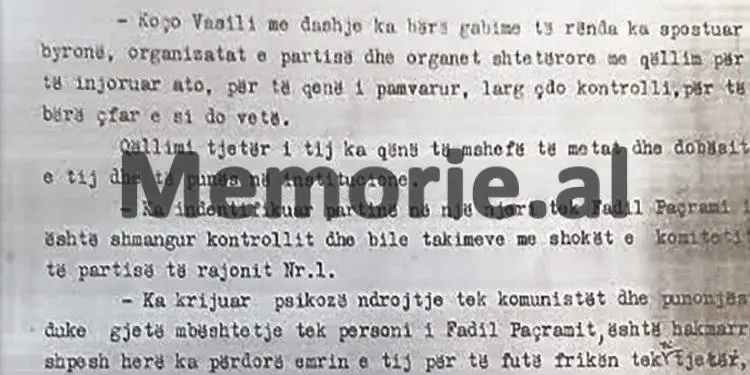
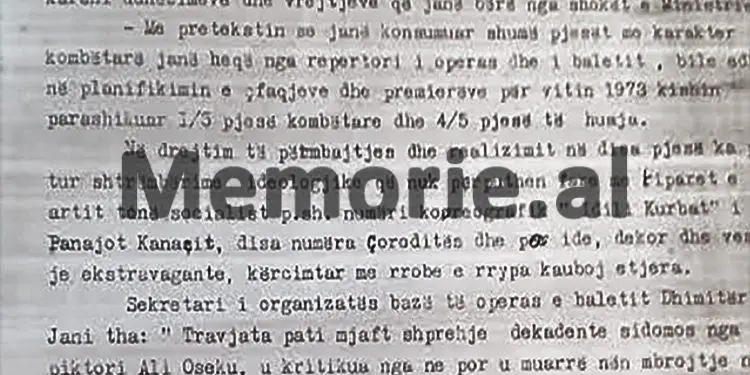
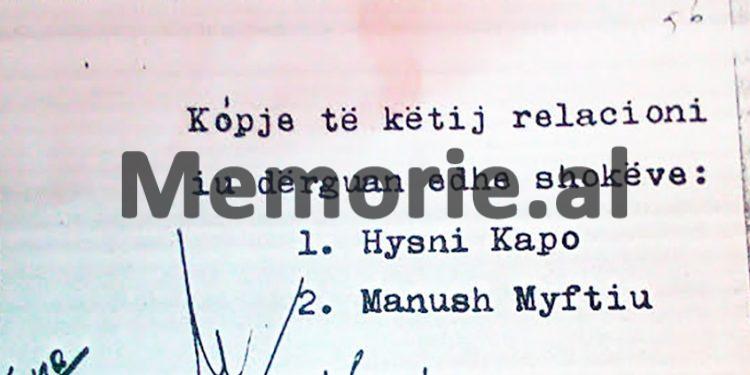
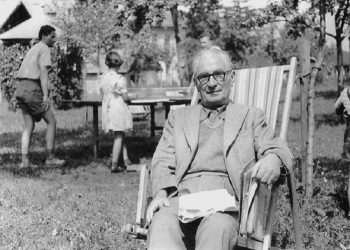

![“Count Durazzo and Mozart discussed this piece, as a few years prior he had attempted to stage it in the Theaters of Vienna; he even [discussed it] with Rousseau…” / The unknown history of the famous Durazzo family.](https://memorie.al/wp-content/uploads/2026/02/collagemozart_Durazzo-2-350x250.jpg)
